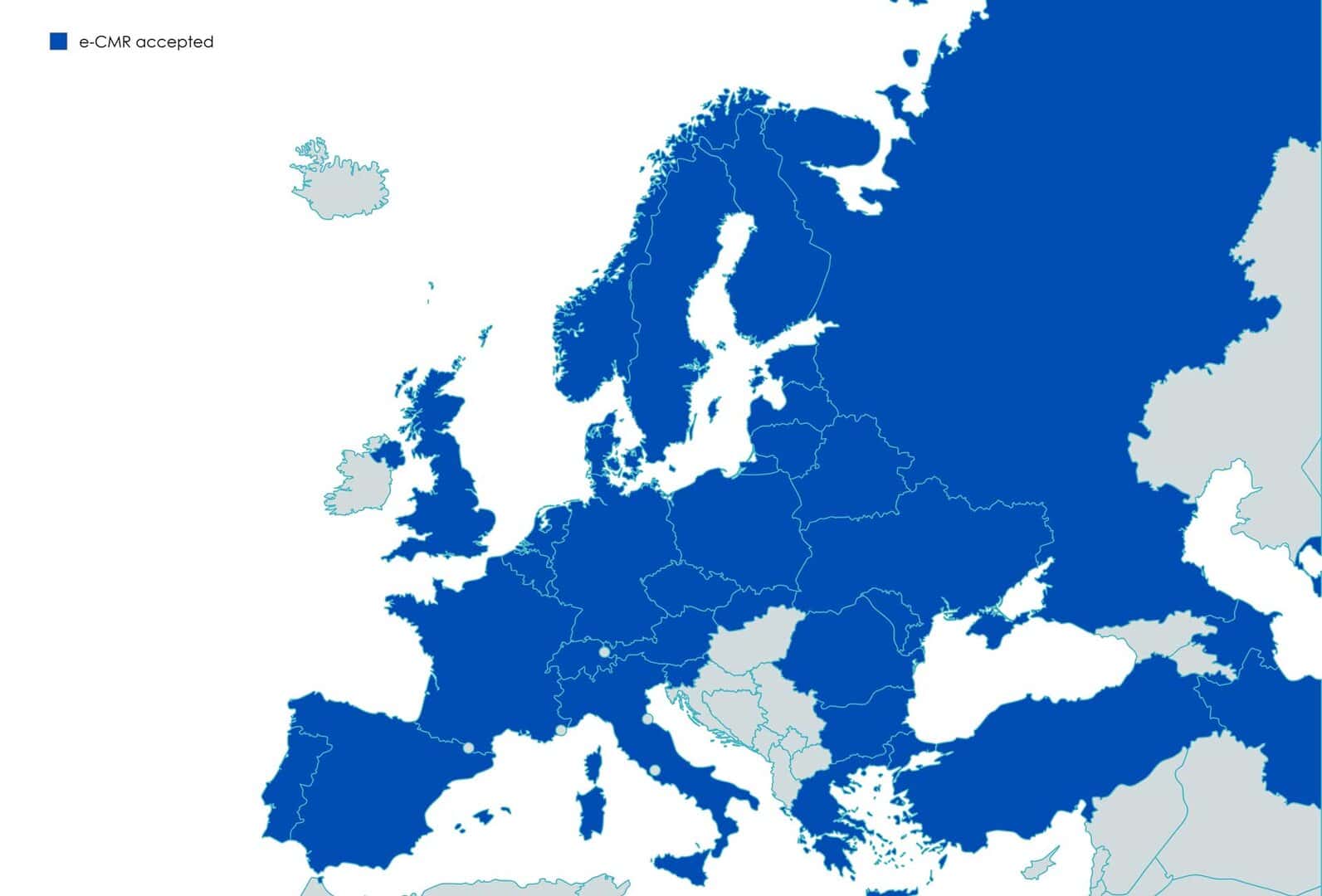12/02/2025
Pionira offers the service to create and manage e-CMRs. But what exactly is an e-CMR?
In short, it’s the digital version of a paper CMR. Same content and legal validity, different format. In this article, we discuss what an e-CMR is and what its advantages are.
What is a CMR?
Let’s start at the beginning: what is a CMR? Officially, CMR stands for the “Convention on the Contract for the International Carriage of Goods by Road”. This contract, drawn up in 1956 by various European countries, outlines the conditions of international road transport. Today, the CMR still forms the legal backbone of European road freight transport, as several non-European countries have ratified the CMR.
A crucial part of this contract is the CMR consignment note. In practice, we refer to this document when we talk about the CMR.
Why Do You Need a CMR?
The CMR serves as a contract between the sender, the carrier, and the recipient and provides essential information about the goods being transported by road. It indicates what is being transported and in what quantity, so that this information is always available to all parties involved.
Upon delivery, the recipient must sign the CMR. This signature serves as legal proof that the goods have been delivered in good condition.
Moreover, the CMR establishes liability, holding the carrier responsible for any delays, missing goods, or damage.

What is an e-CMR and What are its Benefits?
As mentioned above, an e-CMR is the digital version of the traditional paper CMR. Pionira was the first company to receive legal accreditation for its e-CMR platform, which has the same legal validity as the paper version.
But why switch to e-CMRs? Some of the reasons are:
- Cost savings: Although the initial setup may require an investment, research has shown that e-CMRs can save a company between €4.50 and €13 per document in the long run.
- Paperless: e-CMRs reduce the need for paper, making them an environmentally friendly option.
- Improved efficiency: Features such as auto-fill, templates, and automatic archiving reduce administrative workload.
- Enhanced traceability: e-CMRs allow for real-time tracking of shipments and documentation, giving logistics companies more control and visibility over their operations.
The Situation in Europe Regarding e-CMR
In February 2008, a protocol was added to the existing CMR convention, allowing consignment notes to be created digitally. As of October 2024, 35 countries have ratified this protocol.
In practice, this means that all these 35 countries must accept digital CMRs, and a paper alternative is not necessary. By the end of 2026, all European countries must have ratified the protocol. This will be a crucial moment for e-CMR, as its use will not be limited to certain borders, allowing European road transport to use e-CMRs at all times.
Fun fact: Belgium has not yet ratified the protocol, but they have signed it. They are also participating in the Benelux pilot project. So you could say that 36 countries accept the e-CMR.

For more information about our services or e-CMRs, please contact info@pionira.be.
We are happy to help you!

